Naomi Brenner, associate professor in the Department of Near Eastern and South Asian Languages and Cultures, used Ohio State’s Faculty Professional Leave to work on a new book on the rise of modern entertainment fiction in Hebrew. As co-director of a collaborative project on the feuilleton and modern Jewish cultures, Professor Brenner helped expand the growing collection of feuilleton texts, translations and commentaries on their project website, Below the Line: The Feuilleton and Modern Jewish Cultures (feuilleton.judaic.lsa.umich.edu/s/below-the-line/page/index). An article she wrote on Hebrew writer and critic David Frishman appeared in the collection In Their Surroundings: Localizing Modern Jewish Literatures in Eastern Europe (Vandenhoeck & Ruprecht, 2023). Brenner also published a chapter titled “Hebrew and Yiddish: The Language War” in Routledge Handbook on Zionism (Routledge, 2024).

Lúcia Costigan, professor in the Department of Spanish and Portuguese, was granted a prestigious CAPES-PRINT fellowship from the Brazilian government to teach a graduate seminar at Universidade do Estado de São Paulo (UNESP). In the spring and summer, she taught and conducted research at UNESP, in collaboration with professor Giséle Manganelli Fernandes. The CAPES grant allows her to pursue collaborations with colleagues from the Centro de Estudos Judaicos from the University of São Paulo.
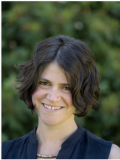
Harriet Fertik, assistant professor in the Department of Classics, recently published “Antiquity, Tradition, and Anti-Blackness in Hannah Arendt’s Public Sphere,” TAPA 154.1 (Special Issue: Race and Racism: Beyond the Spectacular): 271-294, and “Women’s Work: Exploring a Tradition of Inquiry with W. E. B. Du Bois, Anna Julia Cooper, and Aristotle” in The Routledge Handbook of Women and Ancient Greek Philosophy, eds. Sara Brill and Catherine McKeen (New York: Routledge), 554-568.

Ben Folit-Weinberg, assistant professor in the Department of Classics, recently published "Disappearing into Thick Aēr: The Function of Aēr in Homer and Anaximenes," American Journal of Philology vol. 144, no. 2 (2023): 183–219 (doi:10.1353/ajp.2023.a907402), and “Parmenides’ hodos dizēsios, Models, and the Emergence of to eon,” Gaia 26 | 2023 (doi: https://doi.org/10.4000/gaia.3950).
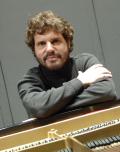
Steve Glaser, professor of piano performance in the School of Music, presented solo recitals in Ann Arbor (University of Michigan); Boston (Longy School of Music); Sarasota, Florida (Steinway Series); Columbus (Ohio State); Zagreb, Croatia (Academy of Music); Freiburg, Germany (Hochschule for Musik); and collaborative recitals in Houston, Texas; Milan Conservatory (Italy); Cosenza Conservatory (Italy); and Cisena Conservatory (Italy). Programs included works by Jewish composers Simon Sargon (Klez Music) and Leonard Bernstein (Sonata for Piano and Clarinet). The recitals included a lecture/performance on Five Pieces for Piano by Paul Ben-Haim, who was a prominent Israeli composer. Professor Glaser’s tour is supported by grants from the Melton Center for Jewish Studies, Ohio State College of Arts and Sciences and Ohio State Office of International Affairs.
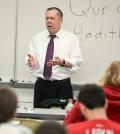
Matt Goldish, professor in the Department of History and the Samuel M. and Esther Melton Chair in Jewish History, published “Who is Not a Jew? Notes on the Reception of the Principle ‘Though He Sinned, He Remains an Israelite’” in Emet le-Ya’akov: Facing the Truths of History—Essays in Honor of Jacob J. Schacter, ed. Z. Eleff and S. Seidler-Feller (Boston: Academic Studies Press, 2023), 366–383. Photo by Andy Gottesman
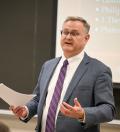
J. Albert Harrill, professor in the Department of History, is serving his first term as Director of Graduate Studies and oversaw the approval of two new degree programs, the stand-alone MA in History and the Combined BA/MA in History. Each are now open to all fields, including Jewish history.
Photo by Andy Gottesman

Robin Judd, professor in the Department of History, published Between Two Worlds: Jewish War Brides After the Holocaust in December 2023. The book won two National Jewish Book Awards and was named a finalist in the nonfiction category for the Ohioana Book Award. In May 2024, she was one of three individuals honored by the U.S. Holocaust Memorial Museum as an education partner and spoke at its annual tribute dinner.
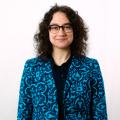
Hannah Kosstrin, associate professor in the Department of Dance and director of the Melton Center for Jewish Studies, published two essays: “Temporal Tactility in Trisha Brown’s Locus (1975)” in Time: A Multidisciplinary Introduction, edited by Sarit Kattan Gribetz and Lynn Kaye (De Gruyter, 2023), 115–126; and “Margalit Oved’s Traveling Aesthetics” in Border Crossings: Exile and American Dance, 1900–1955, edited by Ninotchka Bennahum and Rena Heinrich (New York Public Library for the Performing Arts, Lincoln Center and Museum of Art, Design, and Architecture, University of California, Santa Barbara, 2024), 220–229. She also began a three-year term serving on the Association for Jewish Studies Board of Directors.

James Moore, assistant professor in the Department of Near Eastern and South Asian Languages and Cultures, co-authored “Les papyri sémitiques en provenance d’Égypte du Cabinet du Corpus inscriptionum semiticarum (AIBL),” Comptes Rendu AIBL 2021/2, 581–614 with Maria Gorea.
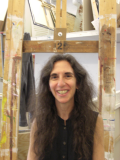
Suzanne Silver, associate professor of painting and drawing in the Department of Art, produced three exhibitions: “Kolture: A Unique Curated Platform for Jewish Arts and Culture,” curated by Yevgeniy Fiks (online at kolture.org); An Opera of Whispers, curated by Margaret Tedesco, / (Slash Art), San Francisco, Cali., September 2023-March 2024, with Joy Episalla and music by Sivan Silver-Swartz (online at slashart.org/an-opera-of-whispers): and State of the Sky, Mattress Factory, Pittsburgh, Penn. Nov. 17, 2023 - Nov. 30, 2025 (Luke Stettner and collaborators).

Michael Swartz, professor of Hebrew and religious studies in the Department of Near Eastern and South Asian Languages and Cultures, was elected as a fellow for the American Academy for Jewish Research. Professor Swartz’s article, “Priests and Strangers: The Role of the Laity in Yerushalmi Yoma” was published in Above, Below, Before, and After: Studies on Judaism and Christianity in Dialogue with Martha Himmelfarb, ed. R. Boustan, D. Frankfurter, and A. Y. Reed, (Tubingen: Mohr Siebeck, 2023), 257–80. Professor Swartz was also interviewed on the Association for Jewish Studies “Adventures in Jewish Studies” podcast about Jews and magic. He has been awarded a National Endowment for the Humanities Fellowship for work on a book about ritual expertise and social structure among the Jewish community in Roman Palestine (third to sixth century CE).
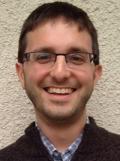
Isaac Weiner, professor of religion in the Department of Comparative Studies and director of the Center for the Study of Religion at Ohio State, published “Responding to the Dobbs Decision: American Jews and Religious Freedom” in Sources: A Journal of Jewish Ideas (Spring 2023): 10-23, which was awarded the 2024 Rockower Award from the Jewish Press Association: First Place Award for Excellence in Writing about Politics/Government.

Ori Yehudai, associate professor in the Department of History and the Saul and Sonia Schottenstein Chair in Israel Studies, published an article titled “A Day of Blood and Valor”: Terrorism and Social Tensions in 1970s Israel,” Journal of Israeli History 41, no. 1 (2023): 1–28. He received a Faculty Development Grant from the Israel Institute in Washington, D.C. to develop a course on “Israel/Palestine: History of the Present” which he taught this past spring, and an Ohio State Arts & Humanities Larger Grant for a research project on Israeli-Palestinian violence in the 1970s. He was interviewed by Spectrum News about teaching Israel/Palestine and was interviewed for an “Ohio v. the World” podcast episode on the 1972 Munich Olympics massacre.
